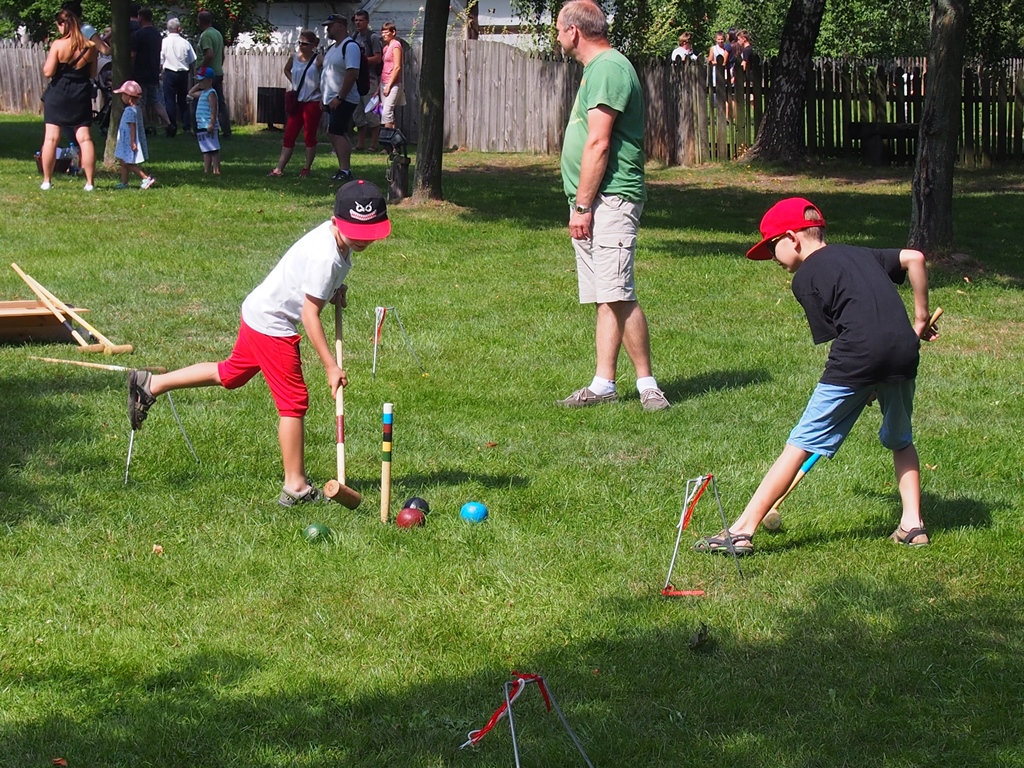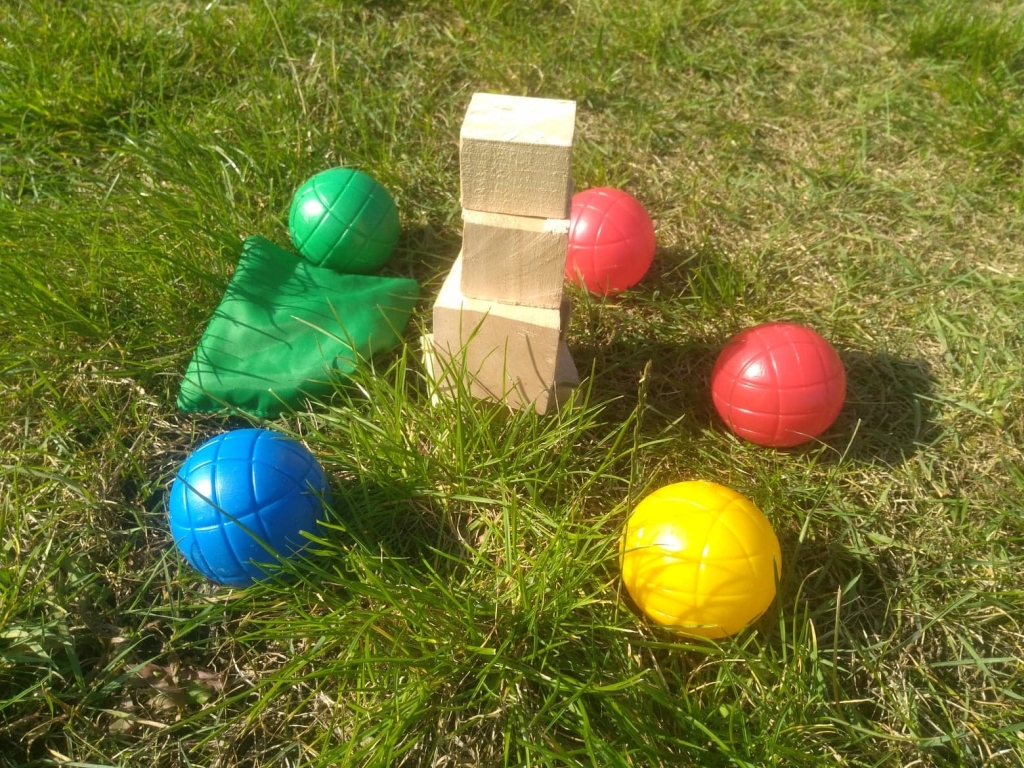
Finally I have done it 🙂
At least once in the era of a pandemic, I have managed to organize my practical activities from traditional games.
I have conducted them with my team in cooperation with a special museum in Poznań, Poland – Porta Posnania, during the event called Nadrzeczne sporty tradycyjne (Riverside traditional sports).
Everyone interested had a great opportunity to play 4 traditional games.
Kubb
We were playing, among others, in a Swedish throwing game, called kubb. I have already written a little more about kubb HERE.
It is an engaging, simple game in which your task is to knock over 5 wooden blocks by throwing a wooden stick or a bean bag at them. At the end, you must also knock down the King – the biggest, wooden figure, situated in the middle of the court.
Knocking over the wooden cubes seems easy, but in reality, it is not.
During my activities, both children and adults were involved in this game.
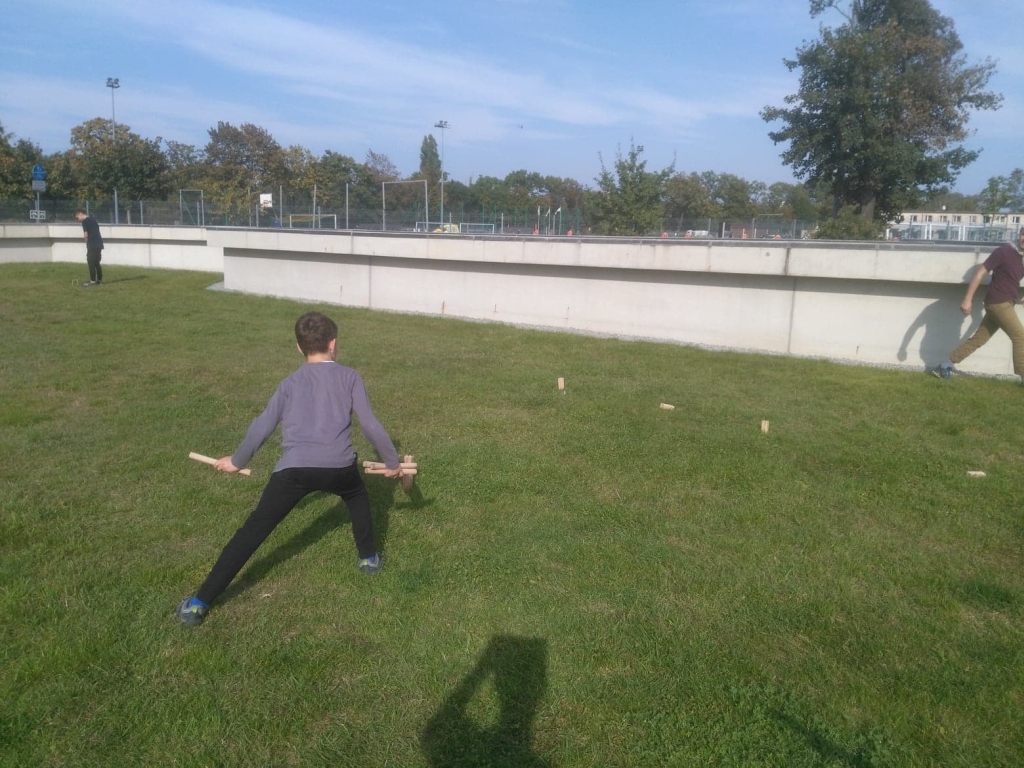


Croquet
The second game was an old entertainment of the aristocracy, called croquet. You can read more about this sport HERE.
This is an interesting game for everyone, in which you use hammer-shaped sticks (mallets) to hit wooden balls of different colors through small gates.
This is an easy-going game, that can be very “addictive”;)
At the same time, croquet allows to combine moderate, recreative physical activity with social integration and friendly conversations between players.

Kapela (the Chapel)
The third one was a traditional Polish game – Kapela (the Chapel). You can read more about it HERE.
In general, it is a funny movement rivarly between players, situated in a circle, and a Kapelamaster – a person standing in the middle of this circle (see below).
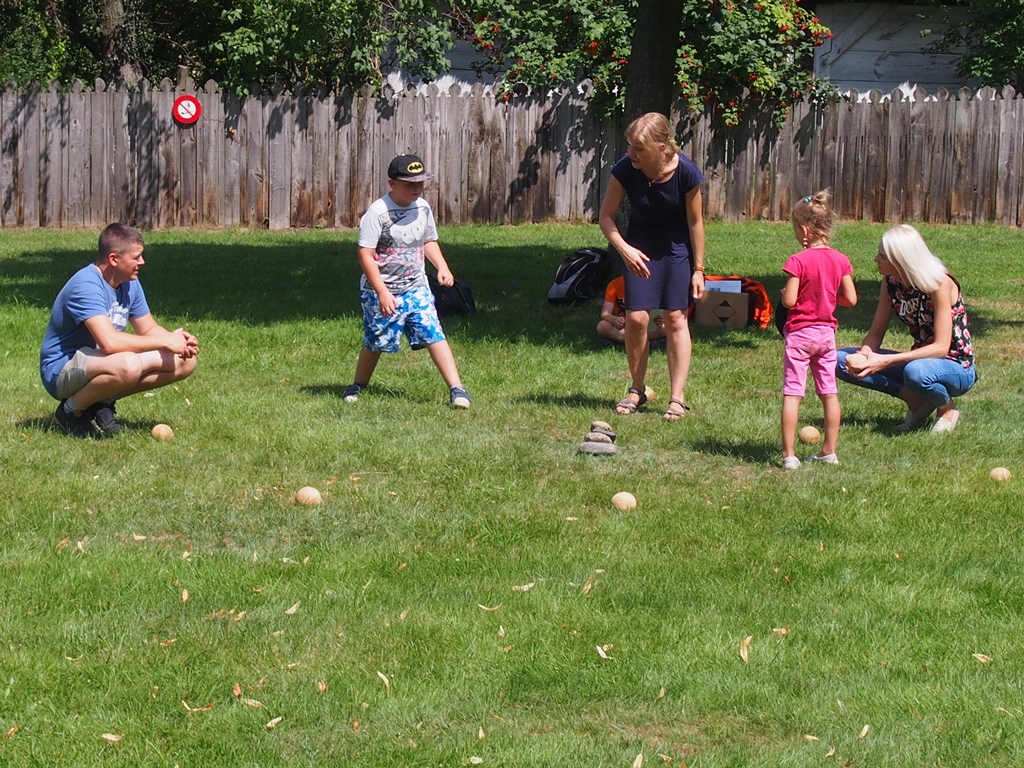
The game is started by the firt participant from around the cirle, who has 2 tasks:
- first, to knock over a small construction, made of wooden blocks (the Chapel), rolling or throwing a ball at it,
- and then to run for her/his ball and return to her/his place the same route.
However, he/she must be quick and careful, because the task of his/her rival (Kapelamaster) is to:
- to reconstruct the Chapel, by putting all blocks back one on another,
- and then to throw at the running player with a hat/a cap or a bean bag.
If the Kapelamaster hits the runner before he/she manages to return with the ball to his/sher place, the hit person becomes a new defender of the chapel (Kapelamaster).
If this person running is not hit, the Kapelamaster remains in his/her place in the middle and the next participant from around the circle throws his/her ball at the chapel and the action of the game repeats.


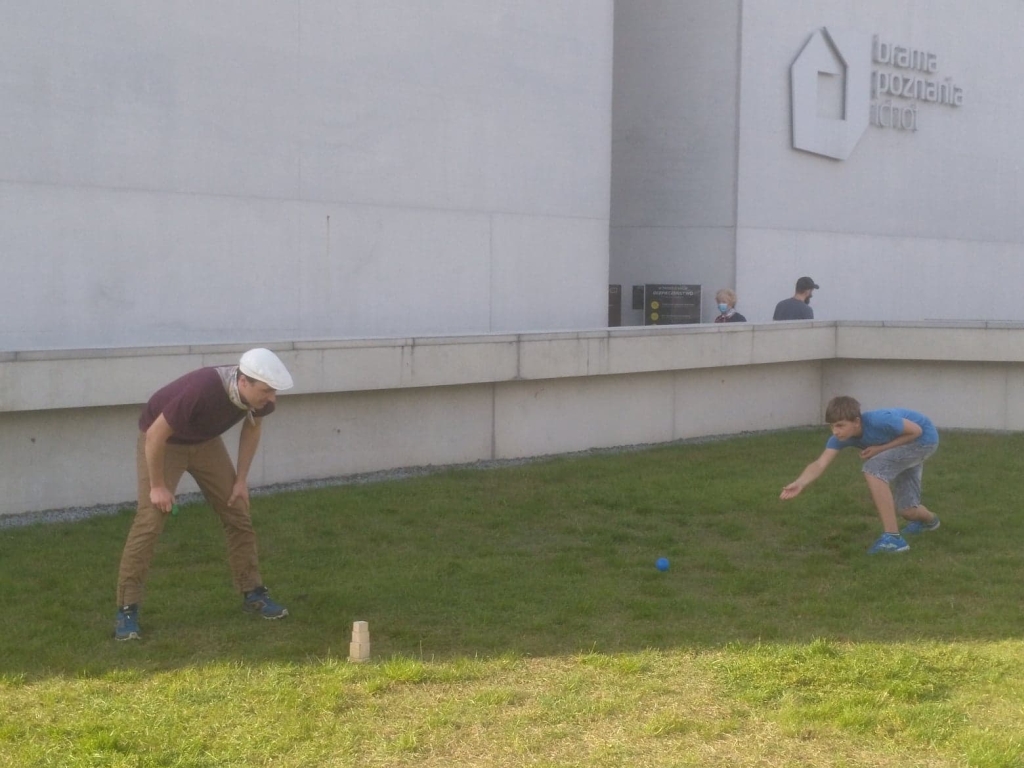
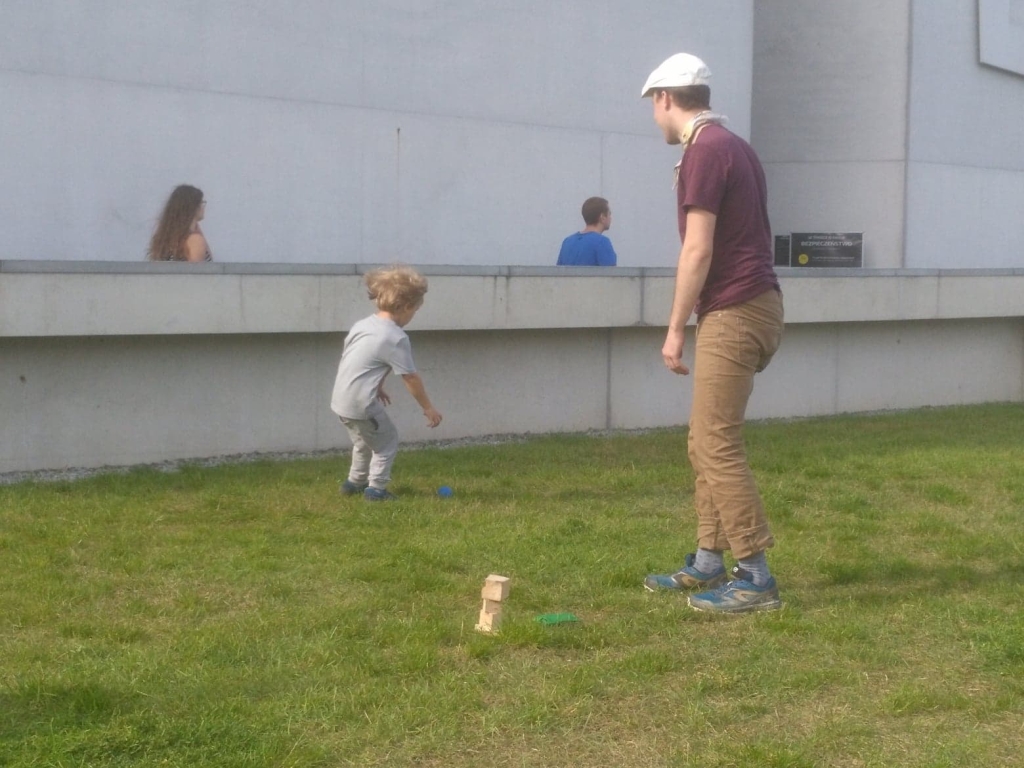
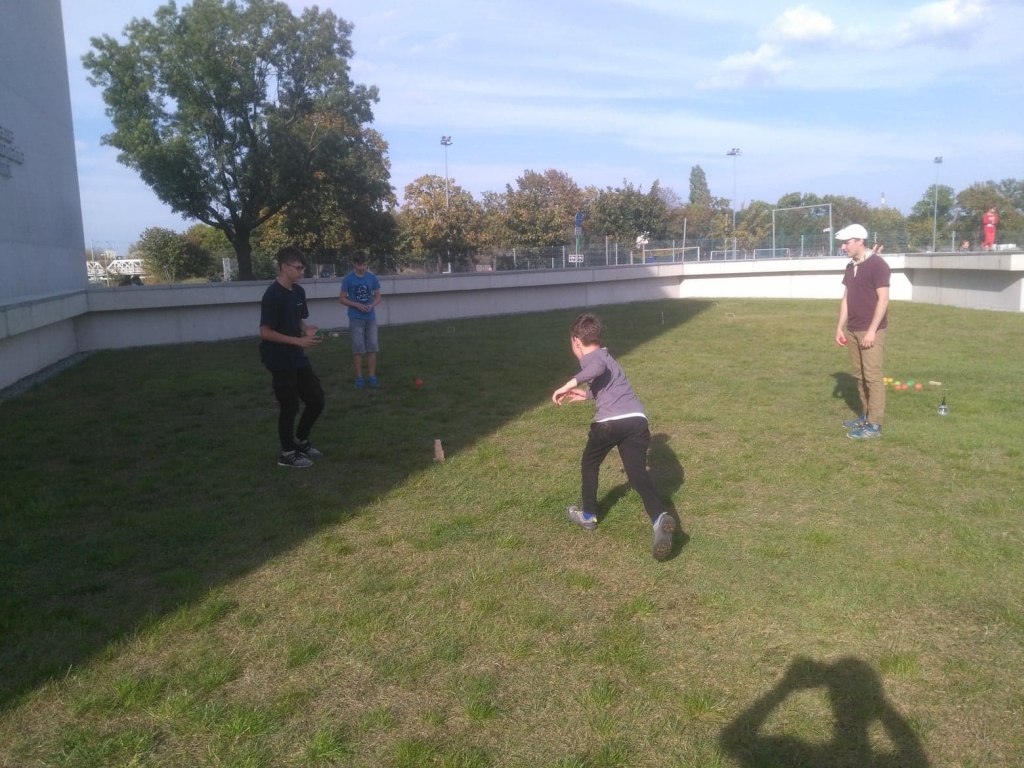


Boccia
The fourth game was Italian boccia. This is an interesting, throwing game, known by different names in many regions of the world.
It works great both as a sport for able-bodied, as well as for people with various disabilities. More about boccia you can read HERE.
Its main rule is simple – the first player throws a small ball into the field. This ball is called jack in English and boccino or pallino in Italian.
Then, the same player throws his/her bigger ball (stained in different colors) as close as possible to boccino.
Next, the other partipicants throw their balls of different colours, trying to do the same.
The winner is the one with the most balls closer to the little one (boccino) in the whole game (you can play, for instance, 4 or 6 rounds etc).
There is a special organisation in Poland – Polish Boccia Association – with its headquarters in Poznań – which organizes regular events in this game in many places in Poland.
Polish boccia players take also part in international boccia competitions.
Currently, Boccia is the fastest growing Paralympic sport.
Both children and adults were involved in the game of boccia during my activities at the Museum’s Porta Posnania square.
At the end of the day, I played an interesting match with an adult resident of Poznań, who was very interested in the whole event, and, what is not often the case with the adults in Poland, he has tried almost all of the games we proposed that day 🙂
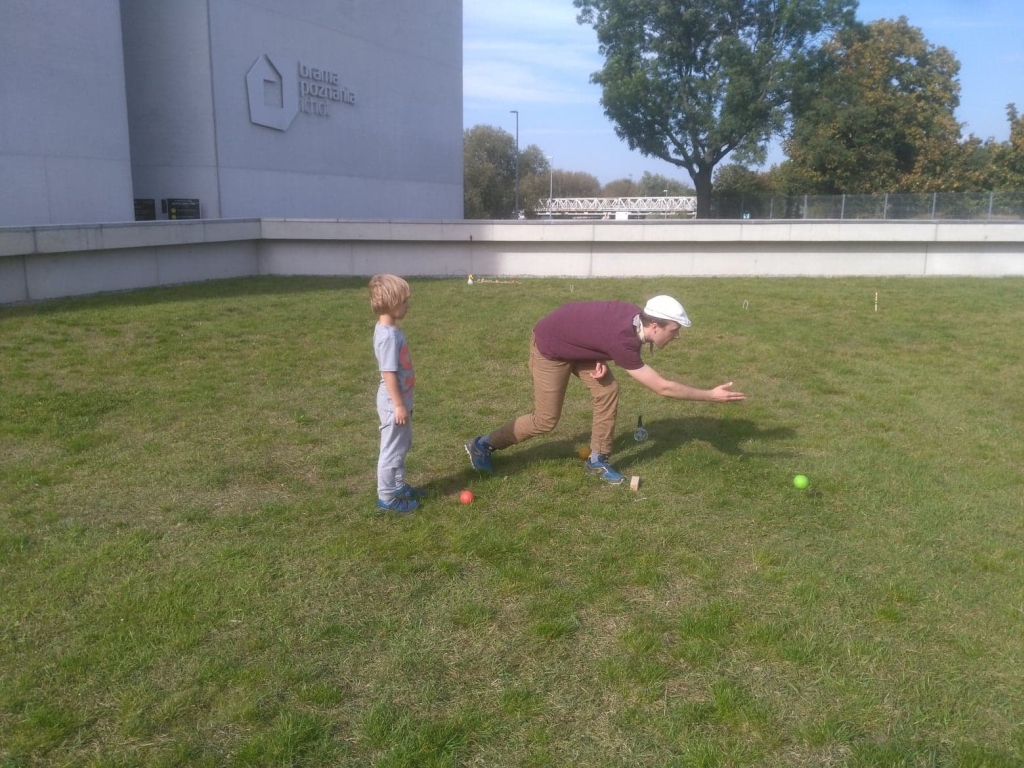


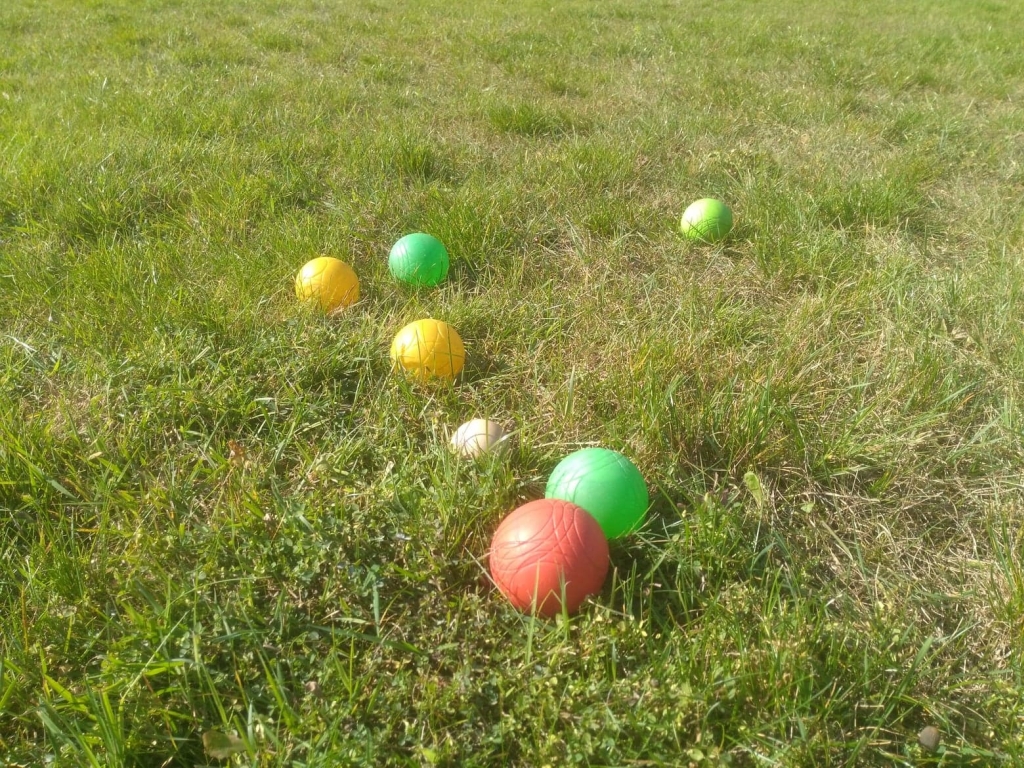
Next activities will come
In the current, pandemic situation, it is difficult to organize such practical activities from traditional games.
I hope and believe, however, that it will be possible next year.
After lockdown and staying at homes, it will be really necessary for all of us.



